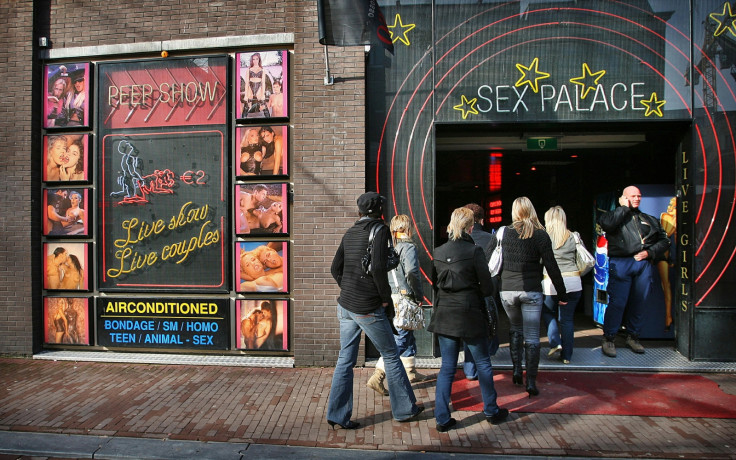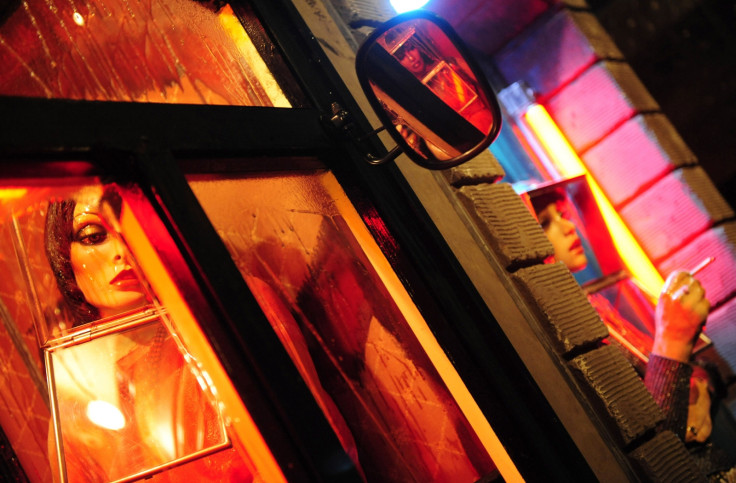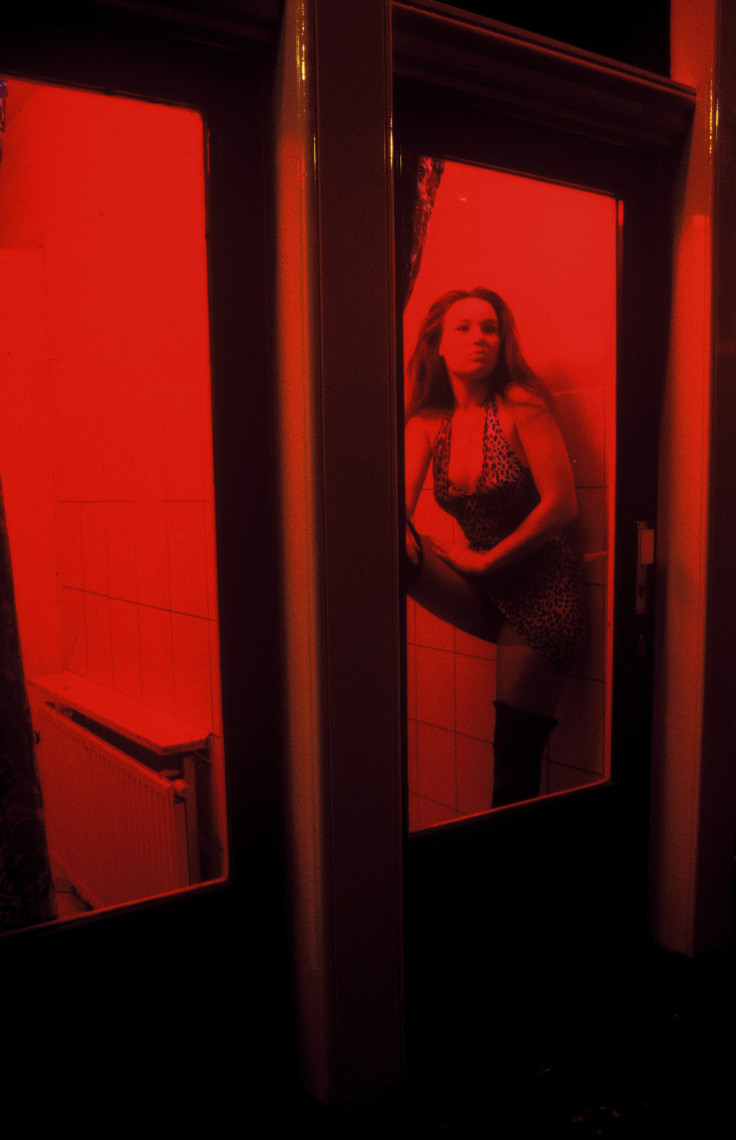Why Amsterdam's Prostitution Laws are Still Failing to Protect or Empower Women

Amsterdam may be heralded as a hub for liberalism and social progression following its legalisation of prostitution in 1988 and consumption of marijuana.
However, after a significant number of brothels have been closed due to suspected criminal activity in the best known Red Light district of De Wallen in Amsterdam, alongside the nature of displaying women in windows like pieces of meat, it shows that the system has not worked.
The Normalisation of Exploitation
I went to Amsterdam for the first time recently, at the ripe old age of 23.
I did all the things they tell you in the guidebooks – marvelled at the paintings in the Van Gogh Museum, climbed every leg-breaking step in Anne Frank's House, had coffee without milk at least three times a day, and ate my weight in Gouda cheese.
However, I didn't smoke a big reefer style doobie spliff joint, in case you were wondering, mainly because the last time I did that I stopped listening to the person I was having a conversation with and instead became obsessed by the notion that I had a big fat hamster face and everyone was laughing at it.
I also had a Febo burger, which was sensational – the radical idea behind Febo, a fast-food chain in Amsterdam, is essentially 24 hour vending machines serving up burgers, croquettes, kebabs and the like. The burger sits in a little heated booth behind a glass door, you pop a couple of Euros into the slot, the door opens and you've got a burger without the need for awkward human interaction.
Funnily enough, the way women lined the windows in De Wallen resembled that of a Febo snack - quick, easy, and on display for those who need a quick fix.
Women as Fast Food 'Treat'

Lumped into the same category as visiting a museum, the zoo or a gallery, the Red Light District is what people rave about it when visiting Holland's capital city.
Lauding Amsterdam for its liberal-mindedness, observing (or visiting) the women in their 'iconic' window brothels in De Wallen, is a 'must-see'.
For those that aren't in the know – in Amsterdam, prostitution and the purchasing of sex is legal, and has been since 1988. Walking through the Red Light District is supposedly a fun, unique experience – countless people had reassured me that I "had to visit it", but I found the narrow, cobbled streets of De Wallen to be passively hostile, especially to women.
I couldn't help but keep my head down and rush through, trying to avoid the gaze of the girls – many of whom looked younger than me – displayed in the glass windows like cuts of meat. Like the sweaty Febo snacks, couped up in their display cabinets.
In fact, the whole Red Light experience made me uncomfortable and sad.
These women – or rather, their bodies – were being reduced to nothing more than a tourist attraction. The fact that a girl in this city is presented in much the same way as a burger in a fast-food joint is somewhat disturbing to me.
Is the System Actually Working?

Amsterdam City Council goes to great lengths to try and ensure the safety of the women working.
Police patrol the city; each room is equipped with a panic button; the women undergo regularly mandatory health checks and are encouraged to register their profession, to pay taxes.
The logic behind the legalisation of prostitution seems to be that by bringing the underworld into the light, the criminal aspect would surely dissolve.
In theory, women would be less likely to suffer abuse at the hands of pimps, less likely to be involved in human trafficking, and more likely to earn a decent wage.
And yet, the system hasn't worked – it's made things worse.
A prostitute in Amsterdam, a notoriously expensive city, will pay up to one hundred euro a night for the rent of a window.
She also has to pay a pimp, and pay taxes if she registers – though only 5% of prostitutes have actually registered for tax, perhaps for fear of the social stigma that comes with publicly announcing yourself as a prostitute.
Just in order to take some home for herself she'll have to have sex with ten to fifteen people per day. The vocal union for the sex workers, De Rode Draad, went bankrupt and closed down in 2009. In addition to this, 13 sex workers have been murdered in De Wallen since 1990.
After twenty years of legalised prostitution, the council ended up cutting down the Red Light district's brothels from 482 to 243 after bouts of criminal activity.
Why Legalising Prostitution is Rotten to the Core
De Wallen, for all its beautiful architecture and friendly people, is rotten to the core, much like the concept of legalised prostitution.
As these bored-looking girls stand behind their red-lit glass doors, looking out as much as we look in, we are supposed to feel better in the knowledge that this profession is sanctioned by the government, which in turn means that the government itself will profit off the sex trade.
However, this doesn't automatically mean that these women have a choice in their work. I'm told there are many women who do enjoy prostitution; I've yet to hear of one, though, and bear in mind that the average age of a woman entering the sex trade is fourteen.
The problem is that the legalising of prostitutes creates a higher demand for these women. That's where human trafficking comes in, and Amsterdam – along with much of Eastern Europe – is one of the most heavily trafficked places in the world, according to United Nations Office on Drugs and Crime (UNODC).

In 2008, six men were convicted of the "largest case of human trafficking ever brought to trial in the Netherlands."
According to the investigation: "some of the victims were compelled to have breast enlargement surgery, and one defendant was convicted of forcing at least one woman to have an abortion.
"Women were beaten and forced to sit in icy water to avoid bruising. They also were tattooed."
In 2009, two men were jailed for forcing around 140 girls between the ages of 16 and 23 into prostitution in Europe – and by controlling them using voodoo.
A now famous campaign from Stop the Traffik showed several window girls breaking into a dance routine; following the routine a huge screen displayed the message "Every year, thousands of women are promised a dance career in Western Europe. Sadly, they end up here."
Amsterdam's human trafficking problem is out of control, and try as they might to maintain a facade of safety for sex-workers, the fact remains: it is one of the most dangerous professions in the world and there is no guarantee of safety.
Amsterdam's attempt to legalise prostitution, 'the oldest profession in the world', has failed, resulting in the acceptance of selling under-age, trafficked women as a tourist attraction.
Traffickers are making a mint off slavery, thanks to this 'liberal' concept.
Before we can even begin to consider the successful legalising of sex work, we must find a way to end the exploitation rampant in the sex trade – for a start, those who pay to have sex with human beings are rapists and should be prosecuted as such. Having sex with someone just so you can pay your rent is not consent.
Despite its honourable intentions, Amsterdam's legalisation of prostitution is not liberal or empowering - it perpetuates the notion that women are the oldest form of currency.
Lily Rae is a writer and musician. Follow her on Twitter at @ohnolilyrae
© Copyright IBTimes 2025. All rights reserved.



















